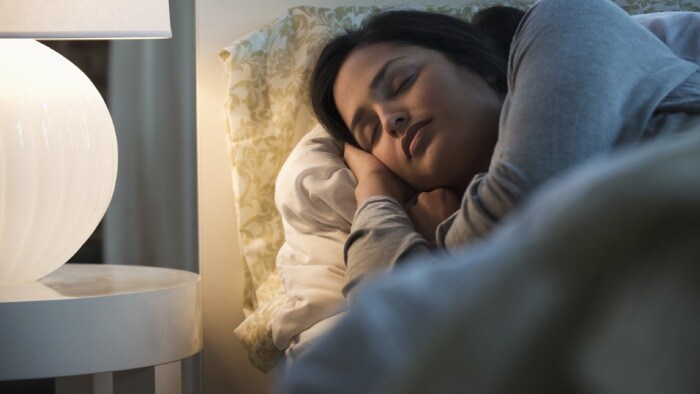Mar 18, 2021
Late night scrolling and COVID anxiety: the two big issues stopping Aussies from getting good sleep
The latest Philips sleep survey
Sydney, Australia – Royal Philips (NYSE: PHG, AEX: PHIA), a global leader in health technology, today announced the findings from its 6th annual sleep survey in a report, Seeking Solutions: How COVID-19 Changed Sleep Around the World. Philips surveyed 13,000 adults in 13 countries to capture attitudes, perceptions, and behaviours around sleep, one year since the onset of the COVID-19 pandemic. This year’s results confirm that while new sleep challenges have been an issue across nearly all geographies and age groups, sleep apnoea patients have been disproportionately affected, including in Australia. Since the beginning of COVID-19, 64% of Australians have experienced one or more new sleep challenges, with 44% of Australians stating they now wake up during the night since the pandemic began. Close to half of those surveyed (40%) cited worry/stress – particularly related to financial challenges (58%) and the pandemic (37%) itself – as a top barrier to getting good sleep. In 2021, 28% of Australians stated they rarely or never get a good night’s sleep. Though sleep challenges were clearly more prominent, the desire and direct action taken to address them rose significantly throughout the past year. Australians have more actively sought to address their poor sleep patterns since the Philips 2020 survey.
Still, surprisingly, 59% of Australians admit they’ve never tried implementing a set bedtime routine as a method of getting a better night’s sleep. Chair of Australia’s Sleep Health Foundation, Dr. Shantha Rajaratnam commented on the findings of this year’s Global Sleep Survey and the importance of good sleep saying: “Sleep is a deeply important part of our overall health and well-being, in fact, effective and regular sleep is a vital gateway to optimising overall personal health. “Recent studies, similar to this report from Philips, have demonstrated the important role sleep plays in allowing us to effectively manage our emotional regulation and mental health, along with our overall cognitive ability. “Sleep should be considered our third pillar of developing a healthy lifestyle – alongside a well-managed diet and regular exercise.”
More people are turning to online resources, telehealth for sleep concerns preferably includes one keyword While people may have relied on lifestyle strategies to address their sleep woes, many turned to online searches to learn more about treatments to improve sleep (35%). With telehealth on the rise during the pandemic, less than half of Australians (43%) expressed a willingness to seek help in the future for sleep related concerns from a sleep specialist through telehealth, with many (66%) believing it would be difficult to find one through an online or telephone-based program. “This year’s survey results confirm what we’ve believed to be true for a while: the slow adoption of telehealth is not due to a lack of technology,” said Penny Stewart, General Manager Sleep and Respiratory Care at Philips Australia & New Zealand. “The tools required to deliver telehealth efficiently and reliably already exist, and the interest from consumers is apparent, particularly in the face of COVID-19. When used properly, sleep telehealth can potentially help to enhance efficiency and quality of care, improve health outcomes, empower patients to make informed decisions, and provide equitable healthcare for all. Since the beginning of 2020, we have seen a 35% increase in the average number of unique devices connecting to Philips’ cloud-based patient management services every day [2].” Sleep apnoea patients have struggled with CPAP therapy use during COVID-19 This last paragraph can deepen the product or solution specifics, also a good paragraph to include a link to more product specifications on Philips.com. Sleep apnoea continues to impact quality of sleep across the world, with a slight increase in globally reported cases from those that have been diagnosed with the issue since last year (2020: 9% vs. 2021: 12%). COVID-19 could be a potential inhibitor to CPAP therapy use among sleep apnoea patients, with 84% of Australian patients stating they have altered their sleep apnoea treatment since the beginning of the pandemic and 43% stating they have stopped treatment due to COVID-19. 22% of those who reported discontinuing the therapy cited a lack of access to supplies due to COVID-19 related reason, with 17% citing concerns around their ability to spread COVID through the use of a CPAP device. These findings further solidify Philips’ commitment to developing clinically proven solutions to empower those living with sleep apnoea or facing other sleep challenges to take control of their health. For more than 35 years, Philips has been studying sleep from every angle, collecting billions of nights of sleep data to better understand how sleep affects health. Today, Philips’ growing portfolio of sleep solutions collectively address more than 80% of known sleep issues [3]. These solutions and services are supported by clinical research and technical data to offer scientifically personalised care and instil confidence among those who use them. To learn more about the Global Sleep Survey and Philips’ commitment to improving access to sleep technology worldwide, visit Philips.com/WorldSleepDay. Those who believe they or a loved one may be at risk for sleep apnoea can visit Philips.com/Sleep to take an online symptom quiz, and speak to a healthcare professional right away. To join the conversation about sleep health and Philips’ growing suite of consumer and scripted sleep solutions, follow @Philips, @PhilipsSleepWellness or @PhilipsResp.
About Royal Philips
Royal Philips (NYSE: PHG, AEX: PHIA) is a leading health technology company focused on improving people's health and well-being, and enabling better outcomes across the health continuum – from healthy living and prevention, to diagnosis, treatment and home care. Philips leverages advanced technology and deep clinical and consumer insights to deliver integrated solutions. Headquartered in the Netherlands, the company is a leader in diagnostic imaging, image-guided therapy, patient monitoring and health informatics, as well as in consumer health and home care. Philips generated 2020 sales of EUR 19.5 billion and employs approximately 82,000 employees with sales and services in more than 100 countries. News about Philips can be found at www.philips.com/newscenter.
About the Survey
This survey was conducted online by KJT Group, Inc. on behalf of Philips from November 17 – December 7, 2020 among 13,000 adults ages 18 and older in 13 countries (Australia: n=1,000; Brazil: n=1,000; China: n=1,000; France: n=1,000; Germany: n=1,001; India: n=1,000; Italy: n=1,000; Japan: n=1,000; Netherlands: n=1,000; Singapore: n=1,000; South Korea: n=999; United Kingdom: n=1,000; and the U.S.: n=1,000). The survey was web-based and self-administered in the primary language(s) of each country. These were non-probability samples and thus a margin of error cannot be accurately estimated. For complete survey methodology, including weighting variables, please contact Meredith Amoroso at meredith.amoroso@philips.com



